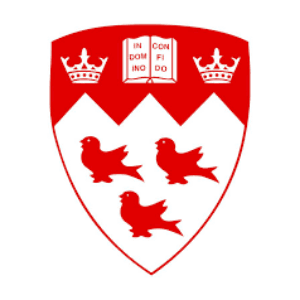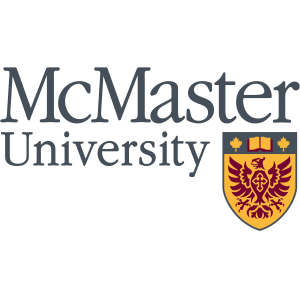Explore By
 Exams
Exams
 Countries
Countries
 Expenses
Expenses
 Universities
Universities
Canada is currently the greatest country in the world for quality of life and consistently ranks among the finest nations in the world. Studying in Canada will give you access to some of the best professors and educators in the entire world, giving you an education that is renowned across the globe.
Your experience will shape your life, whether you decide to attend school in one of our huge, thriving cities or choose for a small campus in a friendly, family-like neighborhood.
It can result in greater professional opportunities at home or a career and a future in Canada. You will, at the least, have access to our four splendid seasons, vast open spaces, an abundance of animals, cultural richness, pristine environment, and extraordinary standard of living.
All levels of education in Canada are of the highest caliber, from primary education to post-secondary education. Because of their extensive training, the teachers contribute a variety of viewpoints to the classroom. Two out of every five professors at the university level have at least one international degree. And 11 of the top 250 universities in the world are in Canada. There isn't, in one's opinion, a finer location to learn!
The "warm and welcoming" stereotype of Canadians is one that the populace is glad to admit is accurate. When you visit Canada, you'll discover a friendly nation with a distinctive Canadian culture that values variety. Canada is regarded as one of the safest places in the world for international students, from big cities to little communities.
Canada offers a high life if that's what you're after. Both domestic residents and foreign students in Canada live comfortably. It's a fantastic place to work and live. In fact, Canada has the highest quality of life in the entire world. The top 100 student cities worldwide are all located in Canada, with four of those locations ranking in the top 100.
The country enjoys studying as well. Indeed, they have studied graduation outcomes for both domestic and overseas students for many years. Do you know what they discovered? Graduates from Canadian colleges and universities have a good chance of finding employment. This is because they set them up for prosperous futures and fulfilling professions. Canada has added 1.8 million new employment for grads in just the past ten years.
Among English-speaking nations, Canada is renowned for having some of the lowest university tuition costs. Our extensive selection of educational options has something suitable for everyone, no matter what their financial situation. To create your budget, do some research on the cost of post-secondary education and daily living costs in the city or town of your choice.
The admission process differs from college to college, but the following documents remain/general requirements remain staple for admission to higher education in Canada.
Proof of English proficiency (TOEFL/IELTS)
GMAT/GRE for postgraduate programs
Letters of recommendation
Statement of purpose
Academic transcripts
Copy of a valid passport
The top 26 Canadian institutions are represented in the QS World University Rankings 2021, which is based on a methodology that evaluates each university's reputation among academics and employers, the influence of its research, and other factors.
The #1 is the University of Toronto followed by the University of British Columbia. There are many other universities namely McGill University, McMaster University, University of Alberta, University of Calgary which are listed as dream universities by international students.

McGill University
Montreal, Quebec
Know More

McMaster University
Hamilton, Ontario
Know More

University of Alberta
Edmonton, Alberta
Know More
One of the most popular destinations for Indian students seeking to study abroad is Canada. Because of its high standard of education, Canada draws students from all around the world. The top courses and recognised degrees available in Canada are offered by each wonderful and independently operated university. Project management, IT and computer science, media studies, early childhood education, and hospitality and tourism are the most well-liked courses.
The younger generation finds it simple to learn, make money, and settle in Canada as a result of this industry's expansion with more significant work prospects at a faster rate. The goal of Canada's flexible post-study work (PGWPP) and immigration programmes is to make it simpler for Indian students to advance their career prospects in Canada.
Many international students see studying in Canada as an opportunity to receive a top-notch education at a lower cost than in nations like the United States, the United Kingdom, or Australia. A rising cosmopolitan society and the opportunity to apply for permanent residency after graduating from school are also excellent reasons to study abroad in Canada.
School | Tuition fees (in CAD) |
Undergraduate Degree | CAD 12,000 - CAD 30,000 / year |
Graduate Degree | CAD 18,000 - CAD 57,000 / year |
Doctoral Degree | CAD 2,500 - CAD 25,000/ year |
Living Expenses
Tuition fees are students’ prime expenditure, but one should not overlook other expenditures that come with studying abroad. For example, accommodation costs, books and supplies, food, travel, and more. Students should keep a little money aside for their grocery shopping, social activities, and emergencies.
Expenses | Average cost |
Books and Stationery | CAD 200 - CAD 350 |
Traveling | CAD 80 - CAD 110 |
Food | CAD 300 - CAD 400 |
Clothes and Footwear | CAD 3,340 |
Miscellaneous Expenses | CAD 2000 |
Recent Blogs
Government-funded scholarships in Canada for international students
Shastri Indo-Canadian Institute
Canadian Commonwealth Scholarship and Fellowship Plan
Ontario Graduate Scholarship Program
National Research Council of Canada (NRCC)
Quebec Provincial Government Scholarship
Ontario Trillium Scholarship
Partnership Grants by Social Sciences and Humanities Research Council of Canada
Banting Postdoctoral Fellowships
Vanier Canada Graduate Scholarships
Non-governmental scholarship in Canada for international students
Lester B. Pearson International Scholarships
York University International Student Scholarship Program
University of British Columbia Scholarships for International Students
Carleton Prestige Scholarships
Calgary International Entrance Scholarships
Winnipeg President’s Scholarships for World Leaders
University of Manitoba Graduate Fellowships
Pierre Elliott Trudeau Foundation Doctoral Scholarships
University of Waterloo Master’s Awards of Excellence
University of Calgary Graduate Awards
Anne Vallee Ecological Fund
Recent Blogs
One of the most popular destinations for Indian students seeking to study abroad is Canada. Because of its high standard of education, Canada draws students from all around the world.
The universities are all outstanding and operate differently. Accurate information about the cost of living in Canada is frequently sought after by foreigners who want to study in Canada or move here with their families.
Canada welcomes immigrants and is quite developed, providing its residents with world-class amenities. As a result, you might be surprised by Canada's cost of living. Someone who would casually evaluate the living expenses based solely on numbers would claim they are excessive.
On-campus Accommodation
Most Canadian colleges and universities provide housing for students, especially those starting their first year. For international students, on-campus housing can be a terrific option because the paperwork required to set up your lease from another country can be handled easily.
When you rent furnished on-campus student housing, you'll have a place to call home as soon as you get there. Although it isn't always the case, rent is frequently less expensive than the alternatives, and homes are typically in accessible locations that allow you to get to your 8:30 a.m. class on time (or at least that's the goal).
Off-campus Accommodation
The price of off-campus living may range from $700 to $1,000 CAD per month depending on your needs. Students usually tend to share a house or apartment with their peers to make rentals affordable.
Procedure
A student should have an accepted offer letter from any University or College from Canada. The student should then pay a GIC of CAD 10,000 to any recognized Canadian Bank. After this one can prepare and arrange necessary documents as per one's application requirements. There are 2 categories under which students can file their visa application.
1. SDS (Student Direct Stream)- Requirements : Students should have paid fees for the 1st year of college/ university.
2. Non-SDS - Students who haven’t paid the fees and are still willing to file their application.
Given below are the general steps that are followed by IRCC(immigration, refugee and citizen of Canada) website:
One of Canada's most alluring features is the availability of jobs. Canada has long been a source of employment possibilities, particularly for Indians. The fact that Canada has the highest paid jobs in the entire world is one of the reasons why thousands of Indians travel there every year.
Part-time Work Opportunity
In Canada, there are a number of rules that foreign students must follow. First and foremost, international students without a work visa who have a study permit are eligible to work off-campus. This proves that anyone can work anywhere for any company.
However, when requesting a research permission, one must provide proof of adequate funding. The working terms and circumstances, which stipulate that people will work 20 hours per week, will be highlighted in the study permit.
Also available is the opportunity to apply for a Social Insurance Number. On-campus employees are exempt from needing a study permit. However, one needs to obtain a separate co-op permit if it's for an internship that your programme designates. In addition, if one can demonstrate that their work visa is legitimate, their spouse will apply for an open work permit.
Full-time Work Opportunity / Post-Study Work Opportunity
A Canadian work visa can be obtained in a variety of ways. Some work permits call for an employer's job offer to be from Canada, others need that the employer produce a Labor Market Impact Assessment (LMIA), and still others demand that the applicant have some type of link to Canada (previous education, spousal sponsorship, etc.). Please refer to the categories listed below to find the work permit that best meets your requirements:
Requiring a Labor Market Impact Assessment (LMIA)
LMIA-Exempt but requiring a job offer or employment contract
Open Work Permits (no job offer or LMIA required)
Recent Blogs
In comparison to many other countries, studying in Canada is rather affordable. You'll likely require between $20,000 and $30,000 each year for tuition. This range is only an average and will vary based on the program and institution you are attending.
Students may enroll in classes in Canada even if they have had a five-year study break. Additionally, provided they can prove an honest and sincere reason for the absence, students who have taken a study hiatus of more than five years may still be eligible for a student visa in Canada.
In a word, yes! After completing their 12th/high school or equivalent, one can study in Canada and continue their graduate education quickly.
A strong academic record is typically the main requirement for scholarships, but other elements, such as your preferred location, subject, and level, may also be taken into consideration. Extracurricular hobbies and volunteer work might also be advantageous when applying for some scholarships. Scores from an English language proficiency test, such as the IELTS, which is widely accepted by all Canadian institutions, may need to be declared.
The courses that maximum international students opt for to study in Canada are in the field of Business and Finance, Engineering, IT, Health and Medicine and Journalism and applied arts.
TOEFL
English language proficiency test
PTE
The computer-based English test
SAT
Standardized test administered by College Board
GRE
Admission test for graduates
GMAT
Test for Business and Management Programs
Confused which university to choose?
Use our recommendation engine to analyze your profile and recommend the most desirable programs that fit you.
Get Recommendations